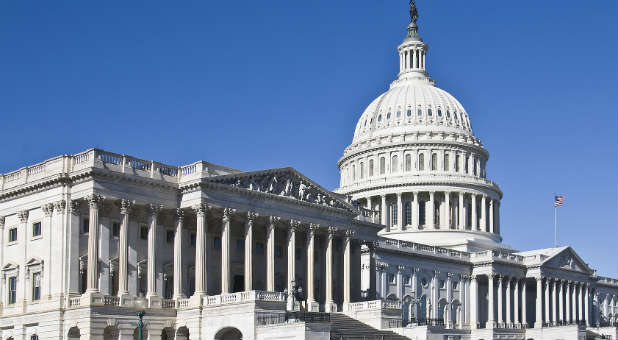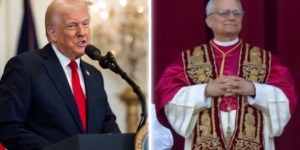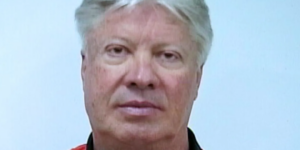Disorder in the House: Is This What the Founding Fathers Wanted?
Under the U.S. Constitution, the House of Representatives was originally designed to be the unruly chamber of Congress, reflecting the people’s unfettered passion. The lower chamber could run so hot it might boil over, the Founding Fathers envisioned, because the Senate would serve to cool everything down. The analogy they pictured was a cup of scalding-hot tea cooling off in a saucer.
Last week, Americans got to see some of what the founders expected.
By Friday, the House was in disarray. Speaker John Boehner (R-Ohio) had given notice, but Majority Leader Kevin McCarthy (R-Calif.), his presumed successor, declared he would not seek the job. One often-mentioned successor, Representative Paul Ryan (R-Wis.), has insisted he is not interested. The Republican Party schism between conservatives and center-right looks so serious that political analysts are wondering who could bridge it and serve as an effective speaker.
But in the days of the early Republic, the House’s formal leader, the speaker, was not that important. The first speakers operated along the lines of the speaker of the British House of Commons—a neutral mediator between different factions. This is why, by tradition, the speaker rarely votes. In fact, according to congressional rules, the speaker doesn’t even have to be a member of the House, though this has never been the case.
It was not until Henry Clay’s election as speaker in 1811 that a powerful leader emerged. From the speaker’s chair, Clay started regularly pushing Congress to action, whether passing bills or leading the charge for the War of 1812. Yet that may have been more about Clay’s immense personal talents than the power of the speakership.
For the power of the House leadership waxed and waned throughout the 19th century. Most speakers served only a term or two in office. The most famous House members of the period, such as Thaddeus Stevens, the ardent abolitionist, and John Quincy Adams, the former president, were powerful committee chairmen.
But House speakers gained enormous power after an 1880 congressional reform strengthened the Rules Committee, traditionally chaired by the speaker. Two of the most famous speakers, Thomas Reed and Joseph Cannon, were both nicknamed “czar” because of their skill in pushing around House members. Other leadership positions were created to assist the leader, including the majority leader and whip.
But the power of a speaker was still not fully secure. Cannon, for example, who held the post from 1903 to 1911, is often cited as the most dominant speaker in U.S. history. Yet there was a serious effort to depose him, much like the one that Boehner feared if he didn’t leave the job on his own. The result was that Cannon lost control of the Rules Committee, and powerful committee chairmen took over authority of Congress.
Over time, the speakers—especially the longest-serving one, Sam Rayburn, who held the office for 17 years – clawed back a great deal of their power. Rule changes also stripped power from committee chairmen during the civil rights fights and then again after Watergate. Though some changes were designed to strengthen the rank and file, they also required wider coordination in Congress. Which gave speakers even more power. They retained this power for decades, as leaders like Thomas P. (Tip) O’Neill, Newt Gingrich and Nancy Pelosi were able to push the House into action.
But now, the power axis is shifting again because congressional leaders are less able to wield control with rewards and punishments. A speaker must be able to carry out threats, whether bottling up a bill or removing members from an important committee. Party leaders must also be able to offer rewards, such as supplying needed campaign funds.
With money playing an ever-larger role in electoral battles, the congressional leadership was at first able to get a tight grip on its members. Boehner, for example, won his 2006 insurgent race for majority leader in part due to his ability to bring in checks. He reportedly spends three weekends a month fund-raising.
But such threats and rewards don’t have the same value now. Boehner punished numerous members for disobeying the leadership—and received nothing but grief and additional enemies for his troubles.
The reality is that for many voters, especially on the right in the Republican Party, passing legislation might not be viewed as a positive development. Fund-raising, meanwhile, has only grown in importance. Elected officials are all expected to be proficient in raising money, not trusting their fate to the leadership’s coffers. At the same time, backbenchers use social media to get themselves noted in the mainstream media. Any member who has enough ambition, drive and a willingness to say something suitably outrageous can regularly get a great deal more attention and fame—and a lot more money—than in the past. The result is a group of congressmen without real loyalty to, or fear of, their leaders.
No matter who is elected speaker, it seems likely that a large percentage of the Republican conference will soon be notably unhappy with the selection. Without fear of real punishment from the leadership and with representatives personally able to campaign without the leadership’s support, it seems likely the next speaker will continue to have trouble maintaining order in the House.
With all of this disorder, the House might finally have returned to its original intent. {eoa}
© 2015 Thomson Reuters. All rights reserved.
Joshua Spivak, an attorney, is a senior fellow at the Hugh L. Carey Institute for Government Reform at Wagner College. He blogs at recallelections.blogspot.com.






































